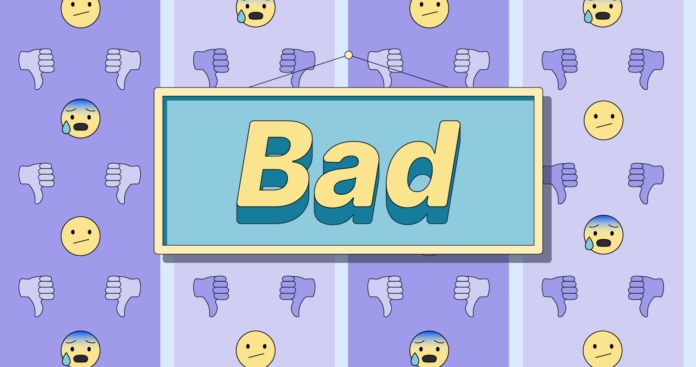Are you looking for another word for bad? Sometimes, we need different words to express how something is not good or unpleasant. Using varied words can make your writing more interesting and easier to understand. In this post, we will explore some great alternatives for the word “bad” that you can use in everyday conversations and writing.
There are many words that can replace “bad,” depending on what you mean. Some words might refer to something harmful, while others might describe something disappointing or low quality. Let’s take a look at some of these words and how they can help make your language richer and more exciting.
Another Word for Bad: Why You Should Use Varied Words
Using another word for bad helps make your language more interesting and specific. Sometimes, when we repeat the word “bad,” it doesn’t really tell the full story. For example, when something is disappointing, it’s different from when it’s harmful. Using words like “poor,” “awful,” or “unpleasant” can give your writing more meaning.
Here’s why varied words are important:
- It keeps your writing fresh and engaging.
- It helps your readers or listeners understand better.
- It makes your language sound more thoughtful.
When Is the Right Time to Use Another Word for Bad

Knowing when to use another word for bad depends on the situation. The word “bad” can mean many things, but specific words describe certain feelings or situations more clearly. For instance, “bad” could mean something is harmful, weak, or disappointing, but choosing the right word helps your readers understand more exactly what you mean.
Here are some examples:
- Awful: Something very unpleasant or disturbing.
- Poor: Something that lacks quality or doesn’t meet expectations.
- Terrible: Something that is worse than bad, often causing pain or discomfort.
Exploring Common Alternatives: Another Word for Bad in Different Situations
There are many words you can use instead of “bad,” depending on what you’re talking about. For example, if something is not as good as expected, you can say it’s “disappointing.” If someone is rude, you could say they’re “mean” or “cruel.” Each word has a different feeling, so it’s good to choose carefully.
Here’s a list of words you can use as another word for bad in different situations:
- Horrible: When something is truly awful or disgusting.
- Unpleasant: Something that makes you feel uncomfortable or uneasy.
- Inferior: When something is of lower quality than expected.
Understanding the Meaning of Another Word for Bad

Sometimes, it’s hard to know exactly what another word for bad means. Words like “poor” and “awful” sound similar but can mean different things. For example, “awful” often refers to something that causes distress, like a horrible smell or a bad accident. “Poor” describes something that is lacking or doesn’t work well.
Here’s what you need to understand:
- Awful: Something shocking or upsetting.
- Poor: Low quality or lacking in some way.
- Terrible: Really bad, sometimes used to describe something with bad consequences.
Conclusion
Knowing another word for bad can really improve the way you speak and write. Using different words helps make your language more interesting and can help explain your feelings better. Instead of always saying “bad,” try using words like “poor,” “horrible,” or “unpleasant” to describe things more clearly. This will help you sound more thoughtful and show that you understand different situations.
So, next time you want to describe something that isn’t great, remember that there are many other words you can use instead of “bad.” Whether it’s “terrible” or “awful,” each word adds a bit more meaning to what you’re saying. By mixing up your vocabulary, you’ll become a better communicator and keep your language fresh and fun.
FAQs
Q: What’s another word for bad?
A: Some other words for bad are “poor,” “horrible,” and “terrible.”
Q: When should I use another word for bad?
A: Use another word when you want to be more specific about how something is bad, like “disappointing” or “unpleasant.”
Q: What’s the difference between “bad” and “awful”?
A: “Bad” is general, while “awful” usually means something is really upsetting or unpleasant.
Q: Can “bad” be used for many things?
A: Yes, “bad” can describe many things, but it’s often better to use more specific words like “poor” or “horrible” for clarity.


